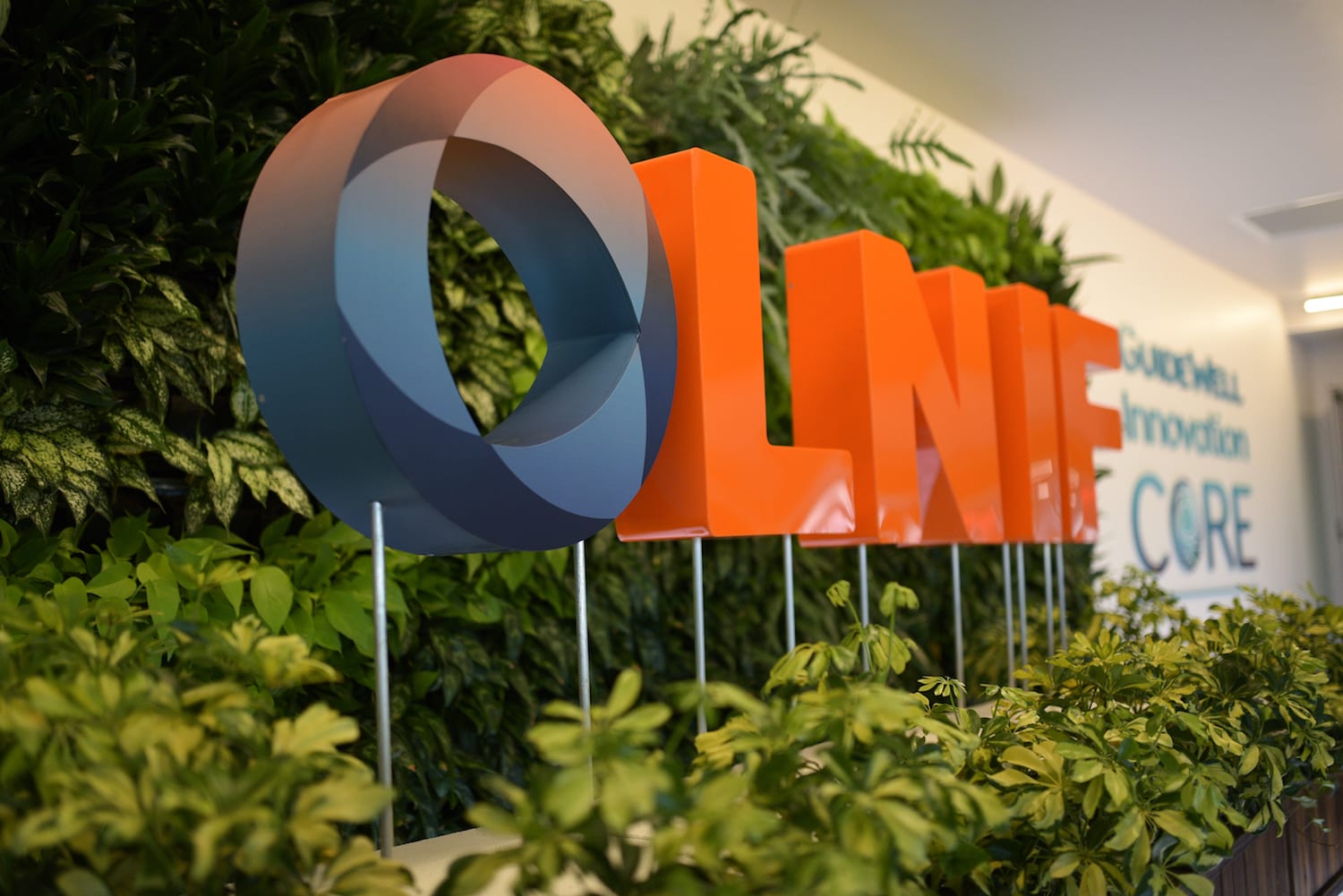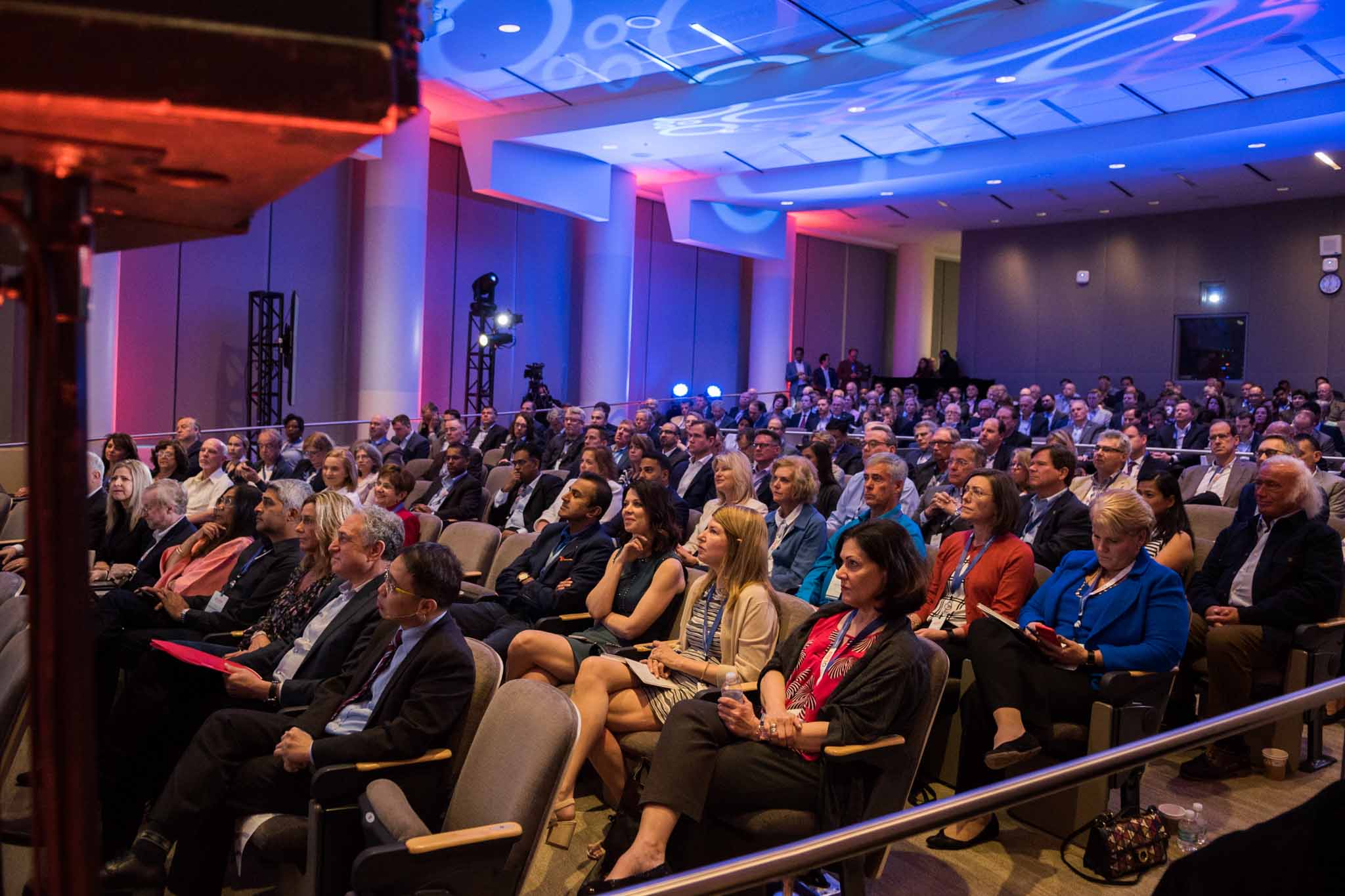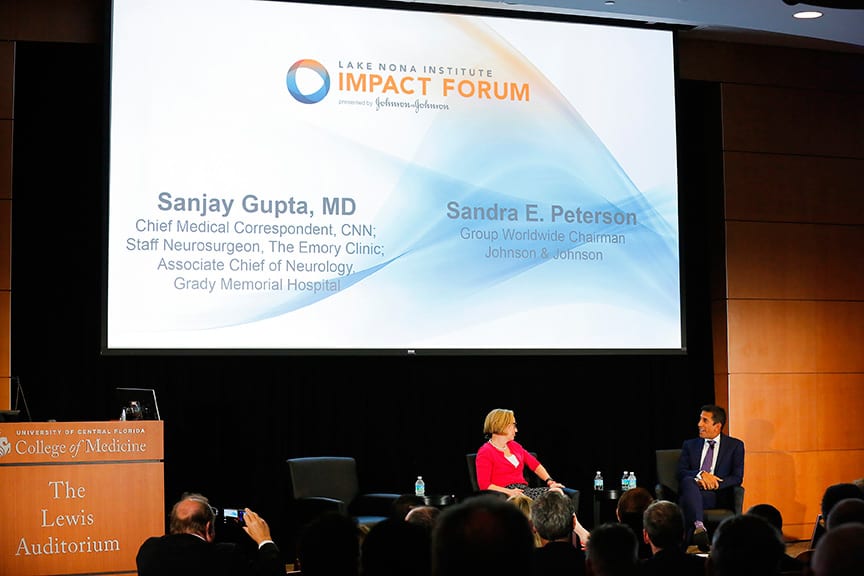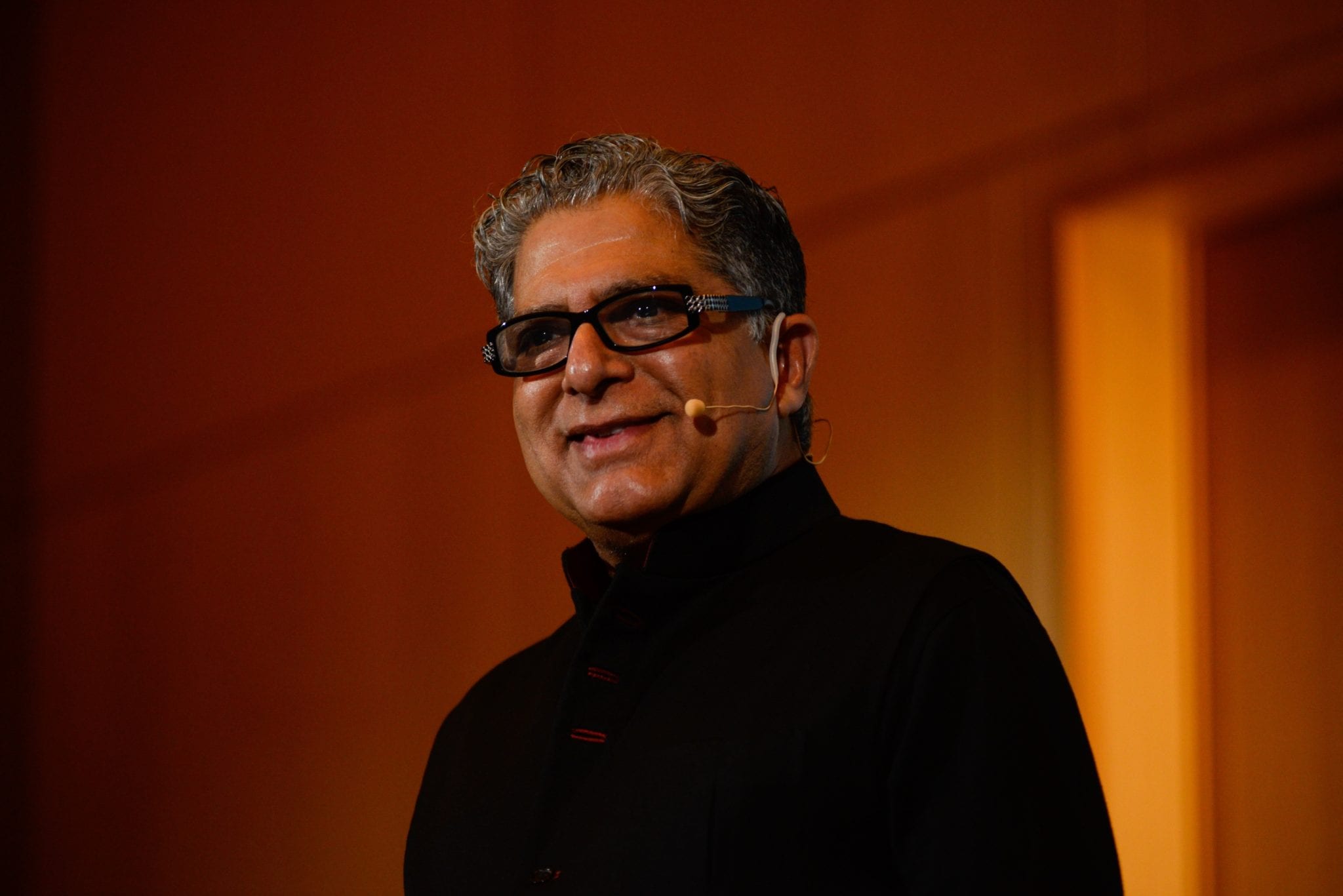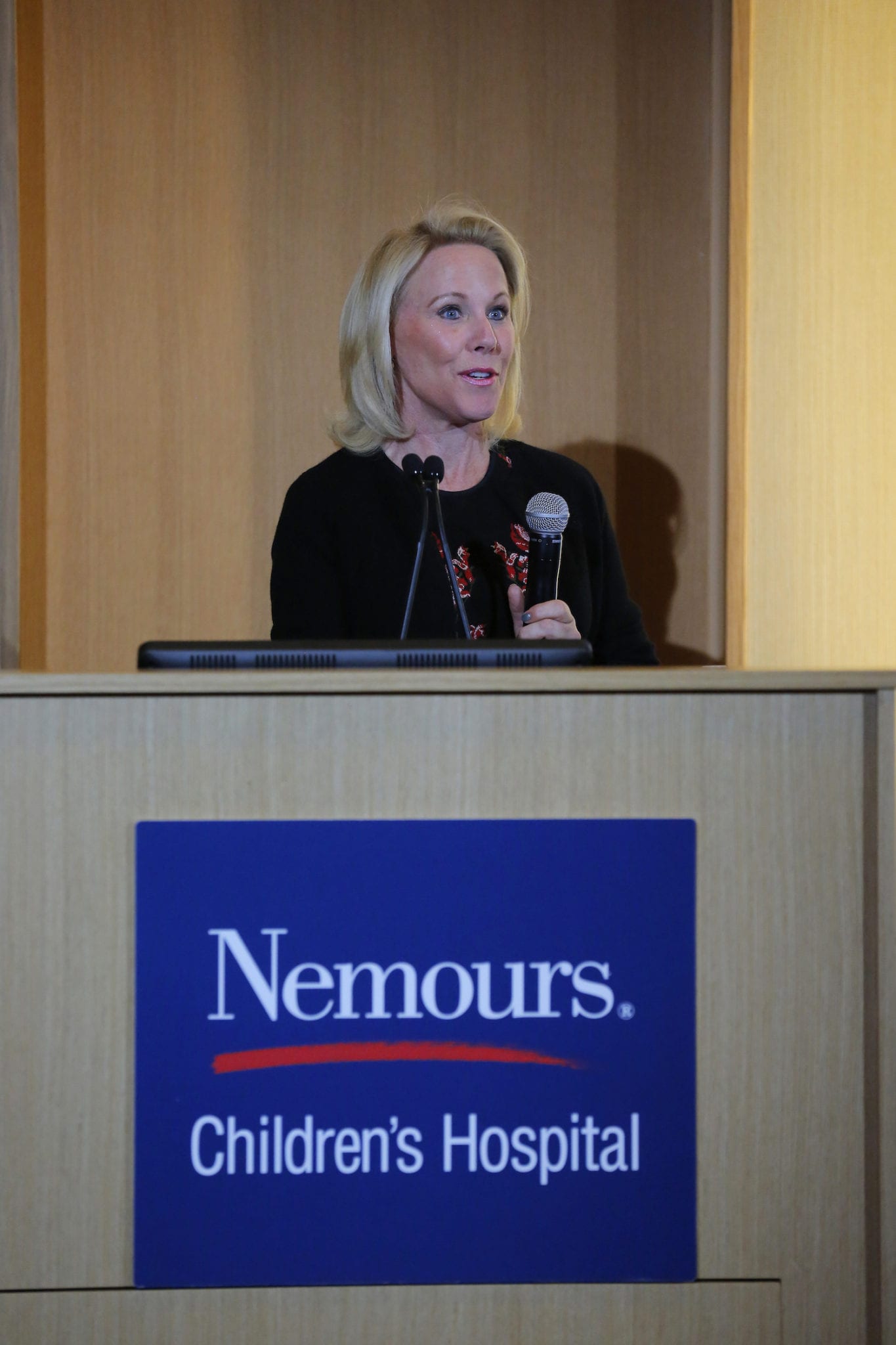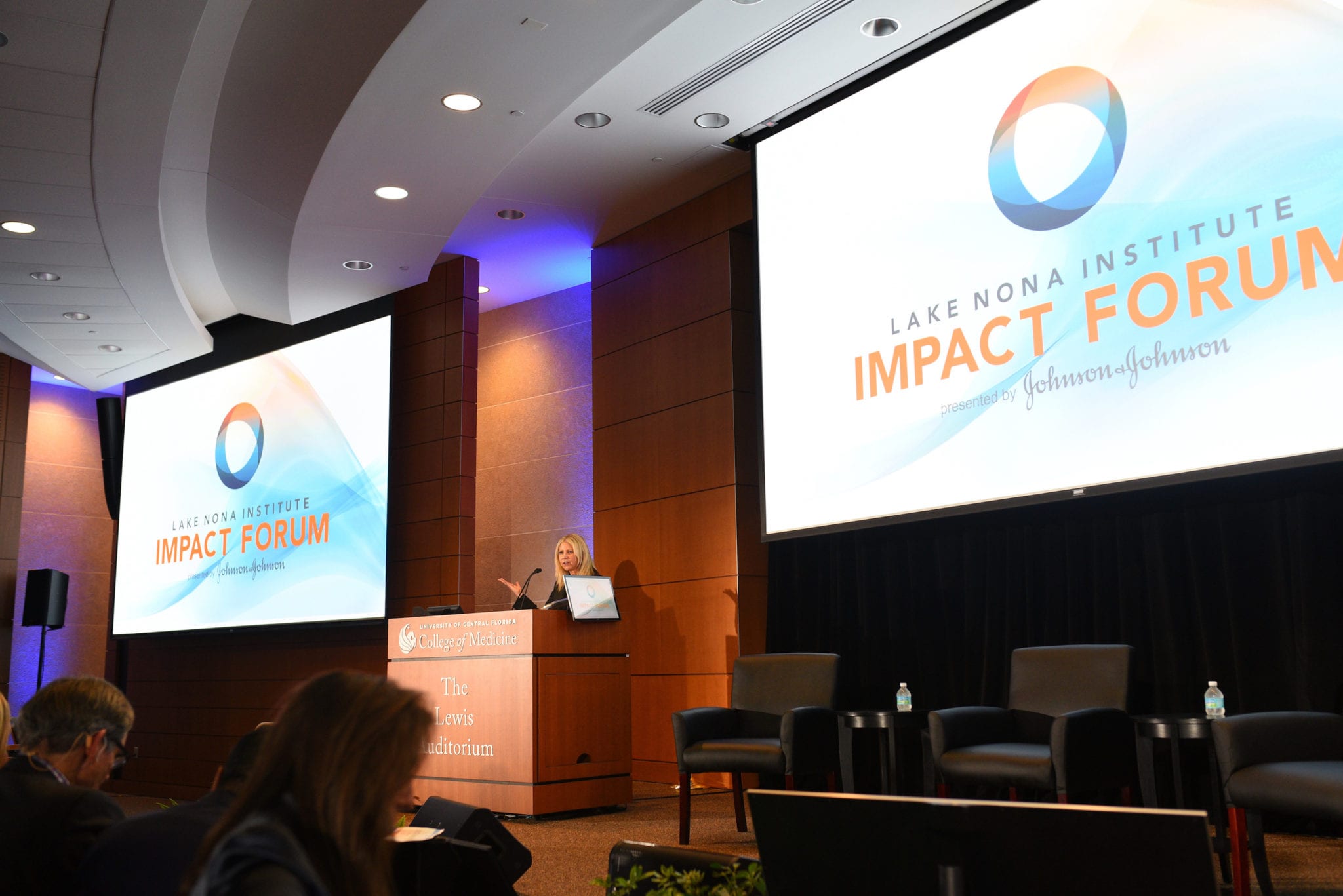More than 250 of the nation’s leading health care entrepreneurs and innovators, academics, government officials and other thought leaders will discuss and develop solutions to improve health, wellbeing and sustainable living throughout the world at the 2018 Lake Nona Impact Forum held Feb. 28-March 2 in Lake Nona, Orlando, Fla. The sixth annual Lake Nona Impact Forum will focus on the ecosystem of wellbeing and feature a series of collaborative, action-oriented discussions about human longevity, the opioid crisis, the impact of healthy community innovation; progress and challenges in advancing health care; and promising health care technologies and start-ups, among other topics.
“The practice of health transcends the health care system and is relevant to our everyday environment,” said Gloria Caulfield, Executive Director of the Lake Nona Institute. “By convening some of the world’s most brilliant minds at the Lake Nona Impact Forum, we are able to put innovative thought into action that improves health, wellbeing and sustainable living at home and around the globe.”
This year’s presentations and conversations will be led by some of the nation’s foremost health and wellness leaders, including keynote speaker Sandi Peterson, Group Worldwide Chair of Johnson & Johnson. In addition, the Lake Nona Impact Forum will feature discussions about some of the most pressing health care issues today: national health care policy, epidemic of poor sleep, mental health, food system as a catalyst for health and wellbeing, understanding the importance of the immune system in relation to our lifelong health, and the opioid epidemic. A special panel will convene four former commissioners of the Food and Drug Administration who will discuss the FDA’s role in the 21st century.
Speakers and panelists include:
- Elizabeth Blackburn, President of the Salk Institute, Recipient of the 2009 Nobel Prize in Physiology/Medicine
- Steve Forbes, Chairman and Editor-in-Chief of Forbes Media
- Deepak Chopra, MD, FACP, Founder, The Chopra Foundation; Co-Founder, Center for Wellbeing
- Tom Insel, CEO & Founder, MindStrong, Former Director of the National Institute of Mental Health (NIMH)
- Mehmet Oz, Professor of Surgery, Columbia University, and Host of “The Dr. Oz Show”
- Toby Cosgrove, CEO and President, The Cleveland Clinic
- Katrina Adams, Chairman of the Board and President of the USTA
- Catherine “Cici” Bellis, U.S. Professional Tennis Player
- Ivan Lendl, eight-time Grand Slam Champion and Coach for Andy Murray
- Deborah DiSanzo, General Manager of IBM Watson Health
- Patrick Geraghty, CEO, GuideWell & Florida Blue
The three-day symposium, developed by the Lake Nona Institute, is an invitation-only event inspired by the Aspen Ideas Festival. The event is set in Lake Nona, a 17-square-mile integrated, master-designed community in Orlando, home to one of the fastest-growing health and life sciences clusters in the nation and a model for the design of a comprehensive, healthy community that is the current focus of a longitudinal study by Johnson & Johnson known as the Lake Nona Life Project (liveworkparticipate.com) and home to WHIT (meetwhit.com), a living lab for the healthy home.
Lake Nona represents the whole ecosystem of wellbeing and the Lake Nona Impact Forum is designed to take a deep dive into the various components that comprise this environment. The event is a think-and-do tank, where novel ideas are not only discussed but can be tested and explored within the innovative Lake Nona community.
To help develop innovative solutions to challenges in achieving optimum health and related technology, the 2018 Lake Nona Impact Forum is hosted at the health and life sciences cluster of Lake Nona Medical City; host venues include the Nemours Children’s Hospital, University of Central Florida College of Medicine, the University of Florida Research & Academic Center, and the GuideWell Innovation Center.
The 2018 Lake Nona Impact Forum is presented by Johnson & Johnson, Innovation Sponsor KPMG, along with Founding Sponsors: Edyth Bush Charitable Foundation, GuideWell Innovation, Sharecare, and Tavistock Foundation; Impact Sponsors: Integrated Wellness Partners, Technogym, Florida Hospital, and Citibank, Roche, IBM Watson Health; Medical City Partners: Nemours Children’s Health System, University of Central Florida College of Medicine, UF Health; and Contributing Sponsors: Dr. Phillips Charities, PepsiCo, Siemens, United States Tennis Association, Boxer Capital, Sleepscore, Civi Biopharma; Community Sponsors: Orange County Government, City of Orlando, Orlando Utilities Commission, Broad and Cassel, HKS Architects, Gilbane, and Bioclinica Research.
To learn more about the Lake Nona Impact Forum and the Lake Nona Institute, visit www.LakeNonaImpactForum.org and www.LakeNonaInstitute.org. Follow us on Twitter at @LN_ Institute and at Facebook.com/LakeNonaInstitute. You can also join the conversation online using the hashtag #LNIF18.


